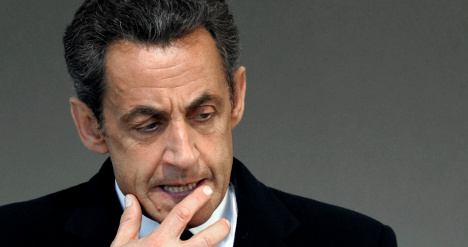Causing shockwaves throughout France, former President Nicolas Sarkozy was in Bordeaux on Thursday night officially charged with taking advantage of the elderly Liliane Bettencourt, France (and the world's) richest woman.
The indictment is the latest stunning development in the ongoing “Bettencourt Affair”, a major political scandal which allegedly involves illegal payments to the centre-right UMP party, and Sarkozy’s 2007 presidential election campaign.
There has been no shortage of reaction from every part of the political spectrum, including some pointed allegations against the Socialist government of current President François Hollande.
Henri Guaino, former Sarkozy advisor and speechwriter, on Friday led the charge against the court's decision, telling Europe 1 radio "Judge Gentil has dishonoured French justice." Guaino also attacked the ruling as "unworthy" and "irresponsible."
Sarkozy's lawyer, Thierry Herzog, on Friday told Europe 1 that his client "has suffered scandalous treatment" at the hands of the court in Bordeaux.
For his part, Sarkozy’s former prime minister François Fillon told Le Figaro, “I am amazed by this unjust and incredible decision.”
“I have sent a message to [Sarkozy] expressing my support and friendship. I hope the truth will triumph at the end of this painful period,” he added.
Outspoken UMP deputy Christian Estrosi saw an element of foul play in the charges against Sarkozy, commenting on his own Facebook page, “Everyone will note that this decision comes 48 hours after the indictment of a socialist minister [Jérome Cahuzac]. Without a doubt, this is payback,” said Estrosi.
UMP deputy Lionnel Luca made a separate allegation against President Hollande, telling his Twitter followers, “François Hollande’s only chance in 2017 is to eliminate, by any means necessary, the only candidate who can beat him.”
La seule chance pour FH en 2017 c'est d'éliminer par tous les moyens la possibilité d'une candidature du seul adversaire qui peut le battre!
— Lionnel Luca(@lionnelluca06) March 21, 2013
Amid the angry backlash from Sarkozy allies in the opposition UMP party, there have been counter-charges from Socialist politicians, among them Socialist Party president Harlem Désir who on Friday told Canal Plus television he was “warning the Right not to put any pressure on the courts.”
“It is unacceptable to impugn the probity and independence of the judges,” said Désir.
Socialist Housing Minister Cécile Duflot on Friday criticized "all the screaming and shouting" of Sarkozy's supporters. Duflot defended the integrity of the process, telling BFMTV: "This investigation signifes nothing more than the justice system doing its job freely."
Neila Latrous, author and expert on Sarkozy and the UMP, told The Local that Thursday's development did not spell the end of Sarkozy's political career.
"It's a shock, certainly. But first there will be an appeal by Sarkozy's lawyer, and even if that fails, the case still needs to go before a second judge before Sarkozy might face the prospect of punishment."
Latrous sees UMP allegations about the judicial process as simple political gamesmanship. "It's just an effort to discredit the court and get some political gain from the situation."
"Is it true that sometimes in France judges take on political investigations to make a name for themselves? Yes. And Nicolas Sarkozy would be the biggest prize out there for any judge. But I don't know Jean-Michel Gentil, and it would be impossible for anyone to say he is politically-motivated," she added.



 Please whitelist us to continue reading.
Please whitelist us to continue reading.
Member comments